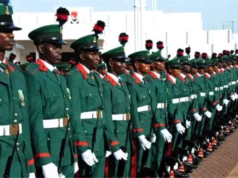The growing cost of transportation has been a cause of concern for some Nigerians who live in the Federal Capital Territory (FCT).
The residents who spoke to the News Agency of Nigeria on Monday said the continuous increase in transportation fares, which was caused by an increase in fuel prices, was affecting their daily movement and businesses.
They, however, called on the Federal Government to find a lasting solution to the fuel price increase so that transportation costs could decrease.
READ ALSO: At N52 Per Litre, Libya Offers Cheapest Petrol Price In Africa
Mr. Bulus Dalong, a taxi driver, lamented how it takes hours to get passengers.
“Waiting in the park for over five hours for my cab to get filled up is not the best experience. In so many cases, I lose all of my passengers due to impatience with my cab getting filled up on time.
“They all complain that the price I charge is too much but there is nothing I can do because fuel has become so expensive.
“We all know the state of the country, and our government is making it worse; we cannot continue like this,” he said.
Dalong pleaded with the government to look into the hike in fuel prices to offer some succour for the common man.
Mr Charis Chuks, a bartender, said he could barely survive with his current pay before the transportation increase and was finding things more difficult because transportation had become an issue.
“I was always complaining about the high cost of food and other items, I never thought a day would come when transportation would be a problem for me.
“I can barely survive with my salary, just for transportation to be a problem again. Government, please help,” he said.
Miss Jumai Elabor, a nurse, said transportation was taking half of her salary every month and she could barely do anything with what was left.
Elabor said saving had become difficult because most of her earnings went into feeding and transportation.
“I can barely transport myself to work now, and the cabs take a while to get full, which makes me late for work,” she said.
Mrs Nkiruka Abang, a civil servant, said the rise in transportation fares had compounded her family’s financial struggles because she and her husband could barely feed their family.
Abang, who said she was positive that things would improve, urged the government to speed up the process of making the country better for its citizens.
Judah Ubeh, a corps member, said that transportation had been challenging for him, leading to a reduction in the number of days he went to work.
Ubeh said he was grateful he had a compassionate boss, who understood the current situation of the country and had allowed him to take some days off.
Mr Julius Odafe, a carpenter, said he could barely afford transportation and struggled to make a living with his earnings.
“I pray the suicide rate does not increase with everything that is happening. I will try to remain hopeful that our country will get better someday and will work for every citizen,” he said.



![Dangote Refinery Slashes Petrol Price, Sets September 15 For Direct Distribution Initiative [See Prices] Dangote Refinery Slashes Petrol Price, Sets September 15 For Direct Distribution Initiative](https://abntv.com.ng/wp-content/uploads/2025/09/Dangote-238x178.jpg)






